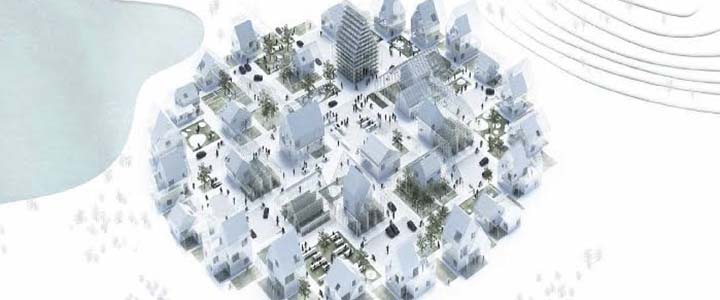RenenVillages is a pilot programme for ecological, sustainable and fully autonomous villages. An example is the village of 25 houses situated in the suburbs of Amsterdam. It is able to produce its own food, generate electricity for lighting and manage waste in a totally efficient way contributing to a closed-loop regenerative system and avoiding any type of contamination. It is worth mentioning the high quality of what they produce: organic food, clean water ready or drinking and clean energy.
The project will come true in 2017 and will grow incorporating more houses, up to 100. RenenVillages is planned to implement in several European countries like Sweden, Norway, Denmark and Germany and further in Middle East.
The eco-village “off-grid” concept must test the modern technology in regard with costs efficiency in order to justify sustainability of integration of the local energy generation, food production methods and waste-to-resource system. The challenge is to apply smart management systems for all this and build resilient communities. The project aims to redefine residential real-estate development through these regenerative communities.
Eco-communities are not new. At the beginning of this century the so called Eco-Towns were developed by utilizing regional technologies and industries in Japan. The scheme is based on sustainable production and consumption involving various eco-concepts: green procurement, consumerism and labeling, industrial ecology, extended producer responsibility, socially responsible investment, integrated waste management, global reporting initiative and corporate social responsibility.
These kind of projects can be considered as an effective countermeasure to the coming population boom[1] and an increasing demand for clean water, food and energy systems. At the same time, it contributes highly for the ecological balance and reduces burdens on local and national governments.
Sources:
Crean el primer pueblo ecológico capaz de producir luz y reciclar su basura.
RegenVillages, the officil site.
This eco-village is designed to be fully self-sufficient, from energy to food to waste.
[1] By 2050 nearly 10-billion people will live on earth, requiring the urgent need for regenerative housing and community development.











